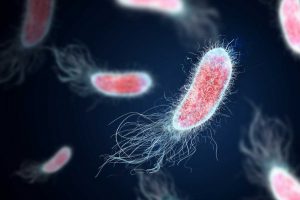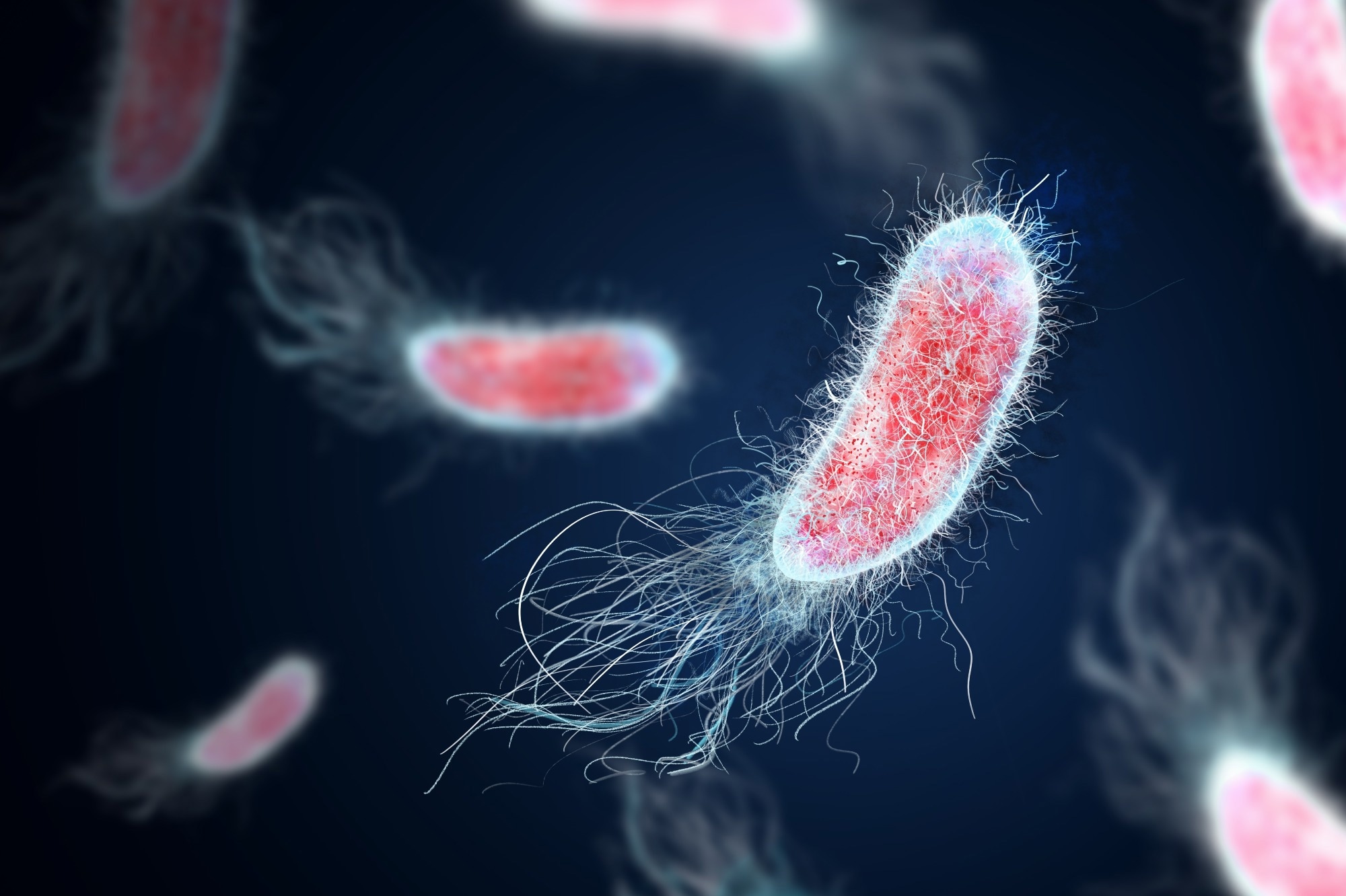Gut feeling: How your microbiome could be shaping your mental health

In a recent study published in the journal Biological Psychiatry, scientists review the involvement of the gut microbiome in triggering the pathogenesis of mental disorders, including major depressive disorder and bipolar disorder.
 Study: Mood disorders: the gut bacteriome and beyond. Image Credit: New Africa / Shutterstock.com
Study: Mood disorders: the gut bacteriome and beyond. Image Credit: New Africa / Shutterstock.com
Introduction
The discovery of the gut microbiome-brain axis has revolutionized the field of psychiatry. Many case-control studies investigated the role of gut bacterial communities in altering human mental health.
Evidence suggests that the gut microbiome influences mental health conditions by modulating various biological processes, including the immune system and inflammation, mitochondrial dysfunction and oxidative stress, tryptophan-kynurenine metabolism, neuroendocrine metabolism, blood-brain barrier integrity, and neurotransmitter production.
In the current study, researchers discuss the contributions of comparatively lesser-explored gut microorganisms, such as viruses, fungi, archaea, and parasites, in influencing mood disorder pathophysiology.
The gut virome
The gut virome consists of prokaryotic and eukaryotic viruses, as well as food-derived plant viruses. Although viruses reside in various body sites, the highest abundance is observed in the gastrointestinal (GI) tract. Gut viruses are as abundant as gut bacteria, with about 95% of the gut virome comprised of bacteriophages, which are bacteria-infecting viruses.
Viruses, including bacteriophages, trigger mood disorder pathophysiology by modulating immune system functions and influencing gut bacterial populations. In animal models of stress-induced depression, an altered composition of the gut virome has been observed, which correlates with altered fecal levels of neurotransmitters and metabolites.
In a non-human primate model of depression, a correlation has been observed between altered gut virome composition, as well as altered brain and peripheral lipid metabolism. In humans, differences in gut virome abundance have been observed in major depressive disorder.
The gut mycobiome
The gut mycobiome refers to the fungal population that comprises about 0.1% of the gut microbiome. The composition of the gut mycobiome can be substantially regulated by diet.
Previous studies indicate that the gut mycobiome influences mood disorder pathophysiology by modulating human immune system functions and gut bacterial composition. For example, higher levels of blood antibodies against certain fungi, including Saccharomyces cerevisiae and Candida albicans, have been observed in schizophrenia and bipolar disorder. In major depressive disorder, alterations in composition and alpha diversity of gut mycobiome and disrupted gut bacteria-fungi interactions have been observed.
The gut archaeome
Archaea are prokaryotic microorganisms that are primarily associated with methane production. Methanogens, the most predominant archaea in the gut, utilize bacterial fermentation-derived hydrogen to produce methane.
Enrichment of methanogens has been observed in certain mood disorders. In fact, several studies have reported that archaea can influence mood disorder pathophysiology by modulating the metabolism of bile salts, trimethylamine, and trimethylamine-N-oxide.
The gut parasitome
Protozoa and eukaryotic parasites, the latter of which are known as helminths, are commensal parasites that reside in the gut and are beneficial for human health. Parasites are known to influence the composition and diversity of the gut bacterial population.
Parasitic infections are associated with a higher prevalence of mental disorders and an increased risk of psychiatric disorders. Helminth therapy, which has shown promising outcomes in immunological diseases, is currently under consideration for treating mental disorders.
Oral microbiome and mental disorders
The oral microbiome is primarily composed of bacteria and is less diverse than the gut microbiome. Dietary composition, especially the intake of highly fermentable carbohydrates, can influence the composition of the oral microbiome.
Previous studies have reported an association between the abundance of bacterial taxa in saliva and the presence of depression and anxiety symptoms in young individuals. Moreover, alterations in the bacterial taxa in subgingival samples have been observed in bipolar disorder patients.
The possible mechanisms by which the oral microbiome influences mental health conditions include the direct translocation of microorganisms from the oral cavity to the brain through facial nerves and olfactory bulb, as well as disruption of the oral-gut microbiome axis and subsequent neuroinflammation.
Small intestinal microbiome and mental disorders
The small intestine has a significant role in the digestion of foods and nutrient absorption, thus demonstrating the importance of the small intestinal microbiome in human health. Preclinical evidence indicates that the small intestinal microbiome is associated with nutrient and bile acid metabolism and mucosal immunity.
Given the established association between healthy dietary behaviors and reduced risk of depressive and bipolar disorders, researchers are now exploring the impact of the small intestinal microbiome on mood disorder pathophysiology.
The aerobiome and mental disorders
The aerobiome refers to environmental microorganisms present in inhaled air capable of modulating the lung microbiome. The lung-brain axis is an emerging area of research, in which some studies have identified the role of the aerobiome in mental disorder pathophysiology.
Exposure to air pollution increases the risk of anxiety and depressive symptoms in humans. However, the extent to which the aerobiome mediates these effects remains unclear.
Therapeutic management of mental disorders
Transplantation of the fecal microbiome from a healthy donor has been shown to improve depressive symptoms in patients with irritable bowel syndrome (IBS). Large randomized controlled trials have demonstrated that fecal microbiome transplantation in patients with moderate-to-severe major depressive disorder is safe and effective in improving GI symptoms and overall quality of life. This therapy has also shown promising outcomes in bipolar disorder patients.
Postbiotics, which are preparations of non-viable microbes and their cell components, have shown promising outcomes in reducing depression- and anxiety-like symptoms in animals. Moreover, bioactive metabolites produced by bacteria during fermentation processes exhibit neuroprotective functions and are currently under clinical investigation for treating mental disorder patients.
Dietary interventions as adjunctive treatments have provided promising outcomes in managing major depressive disorder through their action on the immune system, brain plasticity, neurotransmitters, stress response systems, gene expression, mitochondrial function, and gut microbiota.
Analyzing the composition of the gut microbiome to identify at-risk individuals and develop personalized treatment is gaining importance in the field of psychiatry. Moreover, the gut microbiome composition has been found to influence therapeutic responses in patients with major depressive disorder and bipolar disorder, which may be due to the effect of the gut microbiome on drug bioavailability and drug metabolism.
- McGuinness A. J., Loughman, A., Foster, J. A., & Jacka, F. (2023). Mood disorders: the gut bacteriome and beyond. Biological Psychiatry. doi:10.1016/j.biopsych.2023.08.020
Posted in: Molecular & Structural Biology | Medical Science News | Medical Research News | Medical Condition News
Tags: Air Pollution, Antibodies, Anxiety, Archaea, Bacteria, Bile, Bipolar Disorder, Blood, Brain, Candida, Candida Albicans, Cell, Depression, Depressive Disorder, Diet, Digestion, Drug Metabolism, Fermentation, Food, fungi, Gene, Gene Expression, Helminths, Immune System, immunity, Inflammation, Irritable Bowel Syndrome, Major Depressive Disorder, Mental Disorder, Mental Health, Metabolism, Metabolites, Microbiome, Mood Disorder, Oxidative Stress, Pathophysiology, Pollution, Preclinical, Psychiatry, Research, Saccharomyces Cerevisiae, Schizophrenia, Small Intestine, Stress, Syndrome, Tryptophan

Written by
Dr. Sanchari Sinha Dutta
Dr. Sanchari Sinha Dutta is a science communicator who believes in spreading the power of science in every corner of the world. She has a Bachelor of Science (B.Sc.) degree and a Master's of Science (M.Sc.) in biology and human physiology. Following her Master's degree, Sanchari went on to study a Ph.D. in human physiology. She has authored more than 10 original research articles, all of which have been published in world renowned international journals.




